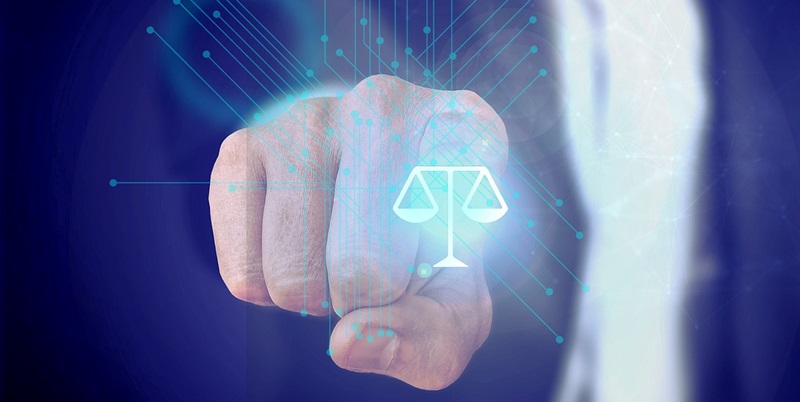Artificial Intelligence (AI) is revolutionizing the legal sector, offering tools like ChatGPT to help with heavy caseloads by automating tasks, leading to improved efficiency and cost reduction. While the potential benefits are considerable, there’s an inherent caution regarding overdependency on these AI systems. Over-reliance may lead to significant missteps, highlighting the complex relationship between AI and legal work. Lawyers need to balance AI’s attractive efficiencies with a thorough understanding of its limitations and potential for error, ensuring they maintain professional standards and safeguard their clients’ interests. As AI continues to penetrate legal practices, it’s crucial to strike this balance to prevent the allure of AI convenience from giving way to costly mistakes.
The Allure and Pitfalls of AI in Legal Practice
The adoption of AI in legal workflows is seductive for its promise to expedite research and drafting processes. Yet, the case of Steven A. Schwartz and his filing of a document laced with manufactured case law reveals, this allure comes at a price. The reality of such technological missteps sends shockwaves through the community, prompting scrutiny of the adequacy of these tools’ outputs.
Similar trepidations were brought to light when Zachariah Crabill, a recent law graduate, and an attorney working on eviction cases faced the unforeseen consequences of submitting AI-generated, non-existent citations. These incidents underscore the critical need to tread carefully when integrating AI outputs into the sensitive and precise domain of legal documentation.
A Caution for Legal Professionals
The legal sector’s adoption of AI is not without its pitfalls, as evidenced by the case of Jae Lee, a lawyer disciplined for relying too heavily on AI-generated, unfounded legal citations. This incident underscores the legal profession’s growing concern regarding blind reliance on AI for legal work.
The rise in these types of errors, followed by professional repercussions, underlines the crucial need for lawyers to meticulously check and validate AI-assisted outputs. Legal professionals are called to maintain a critical eye toward AI-produced content to ensure the reliability of their legal documents and uphold their professional integrity.
It’s evident that while AI can be a powerful tool for legal practitioners, they must exercise caution and judgment, avoiding full dependence on the technology. It’s essential for the legal community to balance the use of AI with traditional verification methods to safeguard the quality and accuracy of their work.
Lessons Learned from Missteps
The aforementioned misfortunes are not mere singular occurrences but pivotal learning opportunities for the legal fraternity. They highlight the imperative of not only understanding AI’s capabilities but also the crucial necessity of conducting thorough cross-verification of AI-generated content.
As such, these events serve as harbingers of the need for heightened awareness and education on the sensible use of AI in legal practices. There is a collectively felt wake-up call for legal professionals to cultivate a measured reliance on AI, ensuring a judicious balance between technology and tradition.
The Path Ahead for Legal AI Integration
In the legal sector, the unanimous view is that training in the responsible use of AI is critical. The adoption of proactive tactics, such as holding industry seminars, providing continuous training on new AI developments, and developing guidelines for best practices, is increasingly being seen as vital.
Such initiatives are not just about preventing repeat mistakes but also about promoting the thoughtful and ethical assimilation of AI into legal workflows. The aim is twofold: to advance the field of law and to safeguard against the negative repercussions of improper AI utilization.
This approach is part of a broader vision to nurture an atmosphere where AI enhances legal practices without compromising professional standards. By maintaining a keen awareness of AI’s capabilities and limitations, the legal profession seeks to reap its benefits while minimizing associated risks. This balanced method holds the promise of keeping the legal sector on the cutting edge, bolstered by AI yet firmly rooted in ethical responsibility.
Striking a Balance: Efficiency vs. Accuracy
In the realm of law, professionals grapple with the pressing need to incorporate the powerful capabilities of AI while maintaining the highest standards of precision. It is essential to strike a balance that integrates AI as an adjunct to legal expertise without diminishing the critical role of human judgment.
The legal sector is in pursuit of a harmonious use of AI, which enhances efficiency but does not compromise diligence and accuracy. The delicate equilibrium between embracing technological advancements and upholding the meticulous nature of legal practices is crucial. This balance is the cornerstone that will guide the adoption and evolution of AI in the legal industry. Lawyers will continue to rely on AI for support, but with the understanding that the unique qualities of human discernment are irreplaceable. Embracing this synergy will define the future of AI in law, adding to the lawyer’s toolkit while ensuring the integrity of the profession remains intact.

